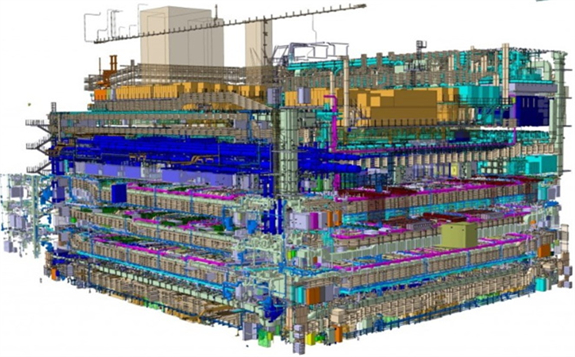The ITER Organisation has selected the contractors to carry out assembly and installation activities inside the Tokamak Complex at the International Thermonuclear Experimental Reactor (Iter), under construction in Cadarache, France. These contracts are the last major assembly and installation contracts planned for first-phase Iter assembly.

Following competitive global tender campaigns managed by ITER's Procurement & Contracts Division, two international groups - one incorporated as a consortium and the other as a commercial partnership - have been awarded contracts for installation activities inside the Tokamak Complex.
These phased, long-term contracts will cover the pre-assembly and installation of the millions of components that make up the plant systems supporting the Iter machine, including fuelling, vacuum, diagnostics, cooling, power and heating. The two assembly contractors for the Tokamak Complex will carry out similar types of installation tasks, notably mechanical and piping works (vessels, piping systems, heat exchangers, pumps, motors; cable trays and cable pulling; wave guides; piping thermal installation; pressure tests), and electrical and instrumentation and control-related works (DC busbars, switching equipment, power cables, I&C cables and cabinets).
The TCC1 assembly contract - for the installation of heating and current drive, diagnostics, fuelling, secondary cooling, and vacuum components - was signed in December 2019 by the ITER Organisation and the Italian Fincantieri Consortium (comprising Fincantieri SpA, Fincantieri SI SpA, Delta-ti Impianti SpA and Comes SpA).
The TCC2 assembly contract - for the installation of primary machine cooling water, test blanket module equipment, some vacuum pipework, vacuum vessel pressure suppression - was signed in December 2020 by the ITER Organisation and the META SNC (comprising France's Ponticelli Freres SAS and Spain's Cobra Instalaciones y Servicios SA and Empresarios Agrupados Internacional SA).
"The Procurement & Contracts teams have worked in very close collaboration with the Legal, Finance, Project Control, Quality and Nuclear Safety teams to prepare, develop, select and negotiate the two Tokamak Complex contracts," said Christophe Dorschner, head of the Procurement & Contracts division at ITER. "The two partners were chosen based on excellent technical capability at a competitive price, and we now need to collectively deliver on these promises through a deep collaboration between the teams at all levels."
Each contract is broken into phases, with detailed works assigned progressively to the contractors through ITER Organisation work packages. Although the works will be concentrated in the Tokamak Complex (outside the Tokamak machine boundary), some activity will also take place under these contracts in the Radiofrequency Building and Assembly Hall.
"Co-activity in the Tokamak Complex will be a challenge to manage, as ITER Organisation assembly contractors work inside congested areas alongside the European Domestic Agency contractors who are finishing the installation of building services such as HVAC, fire protection and electrical services," the ITER Organisation said. "Also challenging are the installation tolerances, the large number of components and the tight schedule."
Iter is an international project to build a 500MW tokamak fusion device (requiring an input of 50MW) designed to prove the feasibility of fusion as a large-scale and carbon-free source of energy. The European Union is contributing almost half of the cost of its construction, while the other six members (China, India, Japan, South Korea, Russia and the USA) are contributing equally to the rest. First plasma is planned for 2025, with deuterium-tritium fusion experiments commencing in 2035. Construction costs are expected to be around EUR20 billion (USD25 billion), with components contributed by the Iter members on an 'in-kind' basis.